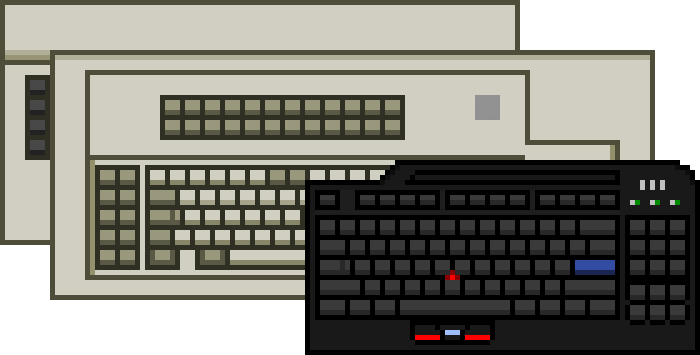P/N 3AA02291000 - Model M-e MCANPOS Keyboard Details & Specs
Provided by the ASK Keyboard Part Number Database
Toshiba Modular CANPOS Keyboard
| FRU part number | 3AC00987200 |
|---|---|
| MFI number | 3AA02290100 |
| Model number or feature code | 2156 |
| Type | "Model M-e" MCANPOS Keyboard |
| OEMs or ODMs | Toshiba TEC |
| Keyswitches | IBM buckling sleeves (early or late POS type) |
| Earliest appearance | |
| Cover colour | Raven Black/Stealth Black |
| Branding | None |
| Feet | None |
| Protocol | IBM Mode 2 (scancode set 2) or USB HID |
| Connection | Black straightened-style detachable 6x2 IDC to dual 6-pin mini-DIN PS/2 Or Black straightened-style detachable 6x2 IDC to Type A USB cable |
| Number of keys | 134 |
| Form factor | Full-size (compacted) |
| Layout & language | French |
| Integrated pointing devices | POS Glide Pad & pointer/two-button Varatouch & touchpad module |
| Data last updated |

